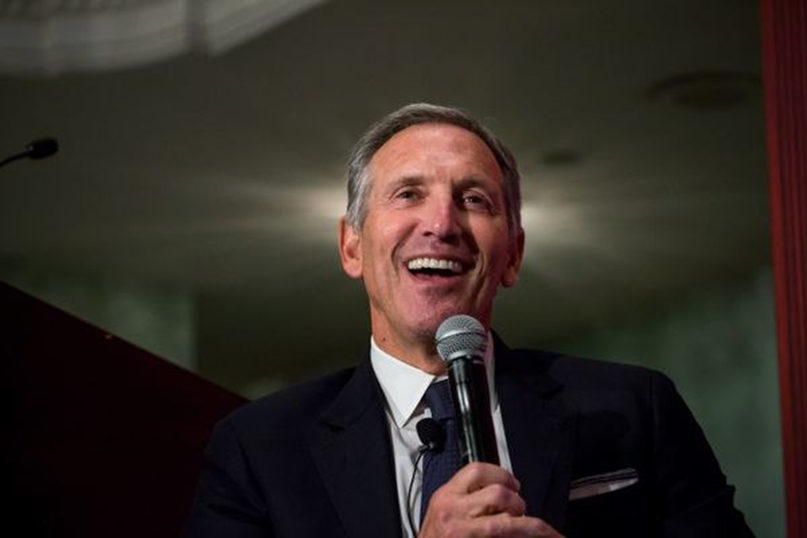
(JTA) – Former Starbucks CEO Howard Schultz said he is “seriously thinking of running for president.” In an interview aired on CBS’ “60 Minutes” on Sunday night, Schultz told correspondent Scott Pelley that he would run as a “centrist independent,” despite being a lifelong Democrat. Schultz, when asked “what effect” his being Jewish would have on his campaign, noted that “I am not running as a Jew if I decide to run for president, I’m running as an American who happens to be Jewish.” He also said “I have great faith in the goodness and kindness of the American people. We elected an African-American president. I’m old enough to remember in 1960 when John F. Kennedy was running and there was an outcry of hate that no one Catholic should be president. I am Jewish, I have faith in God.”
Schultz, who is 65, briefly addressed some of the issues of the day. He said there should be a “fair and equitable way” for illegal immigrants to become U.S. citizens; that every American “deserves the right to have access to quality health care”; and that the 2018 tax cut should have focused less on business and more on the people who need it the most, those “who don’t have $400 in the bank.”
Schultz opened his first coffee shop with borrowed money in 1986 and reopened as Starbucks, which had been a coffee bean shop only, two years later. Now there are almost 30,000 Starbucks stores in 77 countries. In late June he became chairman emeritus of the company. He is also the former owner of the Seattle Supersonics NBA franchise. His net worth is about $3.5 billion.
The Democratic party in Washington, where Starbucks was founded, have called on Schultz to not run as an independent. Tina Podlodowski, chair of the Washington state Democratic party, said that he could garner enough votes, mostly from Democrats, to push more states for Trump. There had been speculation that Schultz would run in 2016, but instead he endorsed Hillary Clinton.
Schultz has written about his hardscrabble Jewish upbringing in New York, and about his transformative encounter in Jerusalem with Rabbi Nosson Tzvi Finkel, who headed the Mir Yeshiva.







 Southern New England Jewish Ledger
Southern New England Jewish Ledger















